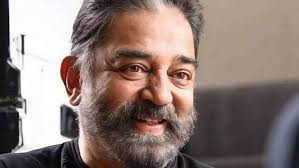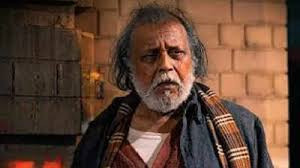Kamal Haasan’s “Tamil Gave Birth to Kannada” Remark Sparks Widespread Controversy

IIE DIGITAL DESK : The statement that has ignited a fierce debate across South India, veteran actor and politician Kamal Haasan’s recent remark suggesting that “Tamil gave birth to Kannada” has triggered a massive row, drawing sharp reactions from political leaders, cultural groups, and the general public in Karnataka and Tamil Nadu alike.
Kamal Haasan, known for his outspoken views on regional and national issues, made the comment during a recent interview aimed at discussing the shared cultural heritage of the Dravidian languages. While his intention appeared to emphasize the historical connections between Tamil and Kannada, many in Karnataka took offense, interpreting the remark as an undermining of Kannada’s independent linguistic and cultural identity
The linguistic relationship between Tamil and Kannada has long been a subject of scholarly study, with both languages belonging to the Dravidian family and sharing some common ancient roots. However, asserting that one language "gave birth" to another is a sensitive claim that can easily be perceived as diminishing the unique history and evolution of each language.
Kamal Haasan’s comment was perceived by many Kannada activists and political figures as dismissive and disrespectful, leading to protests and demands for an official apology. Social media platforms quickly became battlegrounds for heated debates, with hashtags related to the controversy trending widely in both states
Political leaders from Karnataka were among the first to respond strongly. Several opposition leaders accused Kamal Haasan of attempting to stoke linguistic tensions for political gains, particularly as the actor has been actively engaging with political activities in Tamil Nadu. Some demanded that the actor retract his statement and issue a formal apology to the people of Karnataka.
On the other hand, Kamal Haasan’s supporters argued that his remarks were taken out of context and that his intention was to highlight the shared cultural heritage between the Tamil and Kannada people, not to belittle either language.
Cultural organizations and language advocacy groups also weighed in, emphasizing the importance of respecting the distinctiveness of each language and urging leaders to promote unity rather than division among the Dravidian communities
The controversy has raised concerns about the potential impact on Tamil Nadu-Karnataka relations, which have historically experienced occasional friction over linguistic and cultural pride. Experts caution that such statements, if not handled sensitively, could inflame regional sentiments and undermine efforts toward cultural cooperation and mutual respect.
fans of Kamal Haasan have expressed mixed reactions. While some empathize with his intention of promoting Dravidian unity, others believe public figures should exercise greater caution when commenting on sensitive cultural issues
Kamal Haasan clarified that his statement was meant to reflect the deep-rooted connections between Tamil and Kannada cultures, not to undermine Kannada heritage. He called for dialogue and understanding between the two linguistic communities and expressed regret over any unintended hurt caused by his words.
He further emphasized the rich diversity of South Indian languages and called for celebrations of their shared history rather than conflicts over origin narratives
Linguistic experts noted that while Tamil and Kannada share a Dravidian lineage, they have evolved independently over thousands of years with distinct scripts, grammar, and literature. “It is historically inaccurate to say one language ‘gave birth’ to the other,” said a noted linguist from Bengaluru. “Each language deserves to be recognized for its unique contributions to culture and civilization.
The controversy surrounding Kamal Haasan’s “Tamil gave birth to Kannada” remark serves as a reminder of the sensitivities involved in discussing language and identity in India. As both Tamil Nadu and Karnataka continue to celebrate their rich cultural legacies, voices from across the region are calling for respect, understanding, and unity to transcend linguistic pride and foster harmony.
You might also like!
















